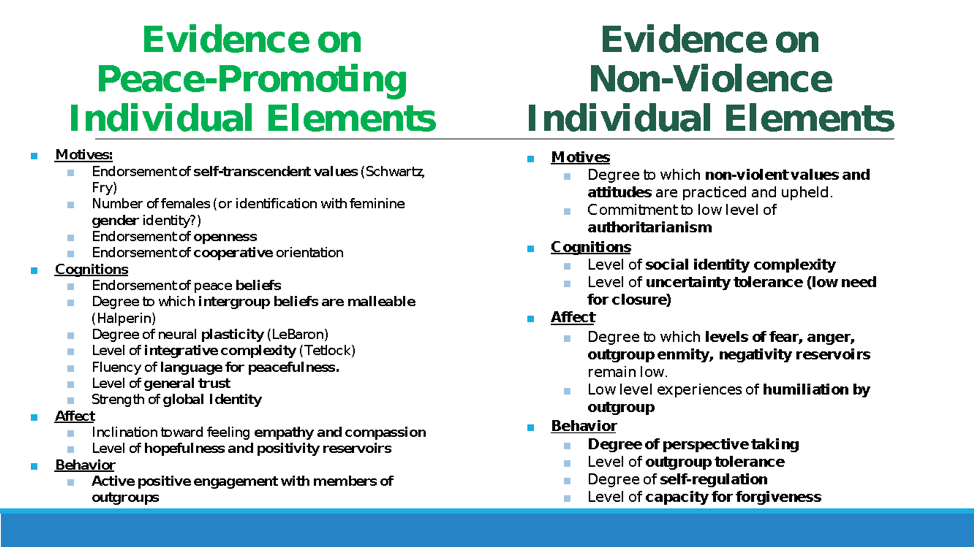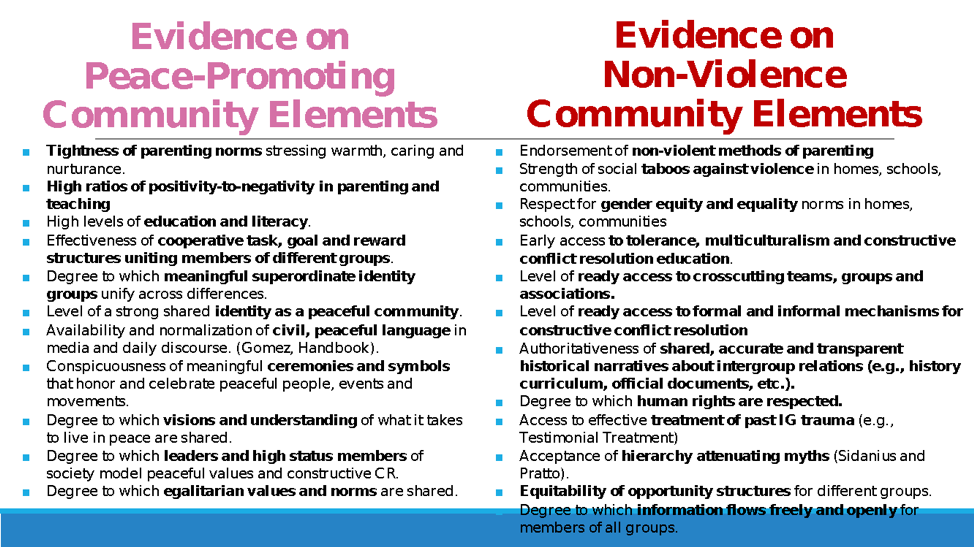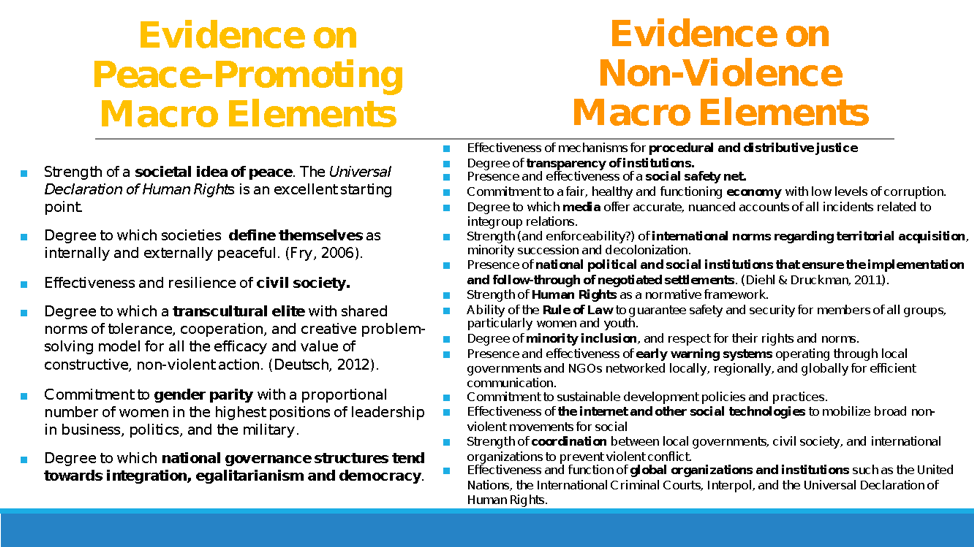AC4 is hiring a research intern for summer 2020!
Despite good faith attempts by civil society, governments and the international community, living in a sustainably peaceful community continues to be an elusive dream in too much of our world. Among the challenges to sustaining peace is the fact that few scholars have studied enduringly peaceful societies, or have examined only narrow aspects of them, leaving our understanding of the necessary conditions, processes and policies fragmented and deficient.
This multidisciplinary initiative aims to provide a holistic, evidence-based understanding of how peace can be sustained in societies. The Sustaining Peace Project employs complexity science as an integrative platform for synthesizing knowledge across disciplines, sectors and communities.
For the past few years, we have been gathering relevant empirical research on factors that promote intergroup peacefulness and prevent or mitigate intergroup violence within and between societies and nations. This has resulted in lists of variables at the micro-individual, meso-community, and macro-national/international levels that a) promote peace and b) prevent destructive conflict/war. Below are 3 slides that list the current variables for each level.
Subsequently, in service of developing a causal loop diagram, we began to map the empirical relations of each of these variables to a) the 8 variables in our core engine, and b) the other variables in the model - resulting in the current CLD also below.
We are currently seeking a research intern sufficiently familiar with peace research to work with us to review the literature we have gathered to answer the following questions:
- Have we correctly identified the most important variables relevant to peacefulness and supported by empirical research at each of the levels?
- Are we missing any critical (empirically-supported) variables that should be included?
- Are the relations (links and loops) that we have currently specified on the map correct and empirically supported?
- Are there other empirical studies that should be included in our summaries and mapping?
We are seeking a highly intelligent, organized and interested individual with research experience to review each of the levels of research, address the above questions, and briefly summarize the findings for each factor. Any currently enrolled Columbia University or Teachers College Masters or PhD student is eligible to apply.
We hope that these reviews and summaries will result in 3 distinct chapters for a book we will publish on the research - one chapter for each level - which could include the RA as co-author.
We also offer a stipend for the work.
Interested parties should send their resume and a cover letter to Allegra Chen-Carrel at [email protected] by June 1st, 2020 with the subject line: CLD research assistant.



